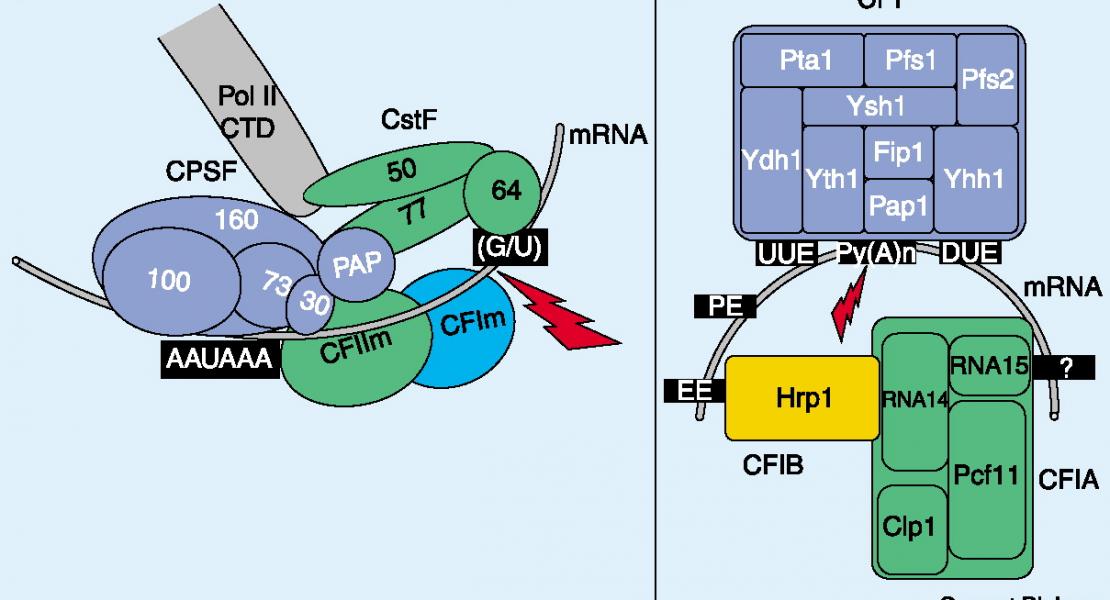Translation of poly(A) tails leads to precise mRNA cleavage
Authors
03-29-2017
12:00pm
PST

Abstract
Translation of poly(A) tails leads to mRNA cleavage but the mechanism and global pervasiveness of this “nonstop/no-go” decay process is not understood. Here we performed ribosome profiling (in a yeast strain lacking exosome function) of short 15-18 nt mRNA footprints to identify ribosomes stalled at 3’ ends of mRNA decay intermediates. In this background, we found mRNA cleavage extending hundreds of nucleotides upstream of ribosome stalling in poly(A) and predominantly in one reading frame. These observations suggest that decay-triggering endonucleolytic cleavage is closely associated with the ribosome. Surprisingly, ribosomes appeared to accumulate (i.e. stall) in the transcriptome when as few as 3 consecutive ORF-internal lysine codons were positioned in the A, P, and E sites though significant mRNA degradation was not observed. Endonucleolytic cleavage was found, however, at sites of premature polyadenylation (encoding polylysine) and rescue of the ribosomes stalled at these sites was dependent on Dom34. These results suggest this process may be critical when changes in the polyadenylation site occur during development, tumorigenesis, or when translation termination/recycling is impaired
